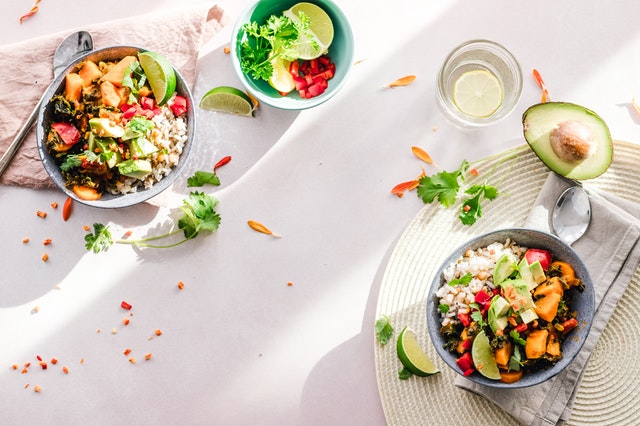
There is a popular misconception that healthy eating requires a lot of exclusion and giving up certain food items. In extreme cases, people starve themselves to reach a rather unrealistic standard of thinness. In truth, healthy eating is all about having a well-balanced diet of healthy food that contains the following:
- Carbohydrates
- Fat
- Fiber
- Minerals
- Proteins
- Vitamins
Balanced Diet: What Is It, Really?
As they say, too much of anything is bad; the same goes for food. To keep our body functioning at its best, it’s crucial to watch what we eat by following a balanced diet. So, what is a balanced diet?
A balanced diet is having the right amount of nutrients from major food groups. This means having the proper intake of carbohydrates, proteins, vitamins, and minerals. Generally, a balanced diet consists of making sure that carbohydrates, saturated fats, proteins, and sugar don’t go below or above the required limits to keep your body nourished and within the ideal weight range. However, b
Benefits of a well-balanced diet include:
- Better energy levels
- Growth and development
- Less illness risk
- Lower anxiety and depression
- Micronutrients-vitamins and minerals that boost development and immunity
- Protection from non-communicable diseases (cardiovascular disease, diabetes, obesity, certain types of cancer)
- Weight maintenance
Components of a Well-Balanced Diet
- Carbohydrates – This makes up around 60% of an individual’s diet and is a vital energy source. Like what we’ve learned in school, carbohydrates are responsible for giving our body energy to get through the day. Pick from complex carbohydrate sources like brown rice, millets, grains-wheat, and more.
- Fats – About 15% of daily caloric needs come from fats. They’re also a rather fantastic energy source. Aside from this, they help in the storage and provision of vitamins as well as hormone synthesis. Good fat sources include polyunsaturated fats (flax seeds, sunflower seeds, and such), monounsaturated fats (oils like sesame and olive), as well as saturated fats (like ghee and butter). Despite these benefits, they must be used in moderation.
- Protein – Protein is essential for growth and development as a person grows up. 25% of daily calories need to come from protein in the likes of black-eyed beans, kidney beans, and even chickpeas. Lean meat, fish, and eggs are also key protein sources. Milk and its products, such as yogurt and curd, are also ideal.
- Vitamins and Minerals – Fruits and vegetables are the main sources of folate, iron, potassium, vitamin A, and vitamin C. Taking on healthy meals on a budget should include at least an apple, an orange, or any delicious fruit you enjoy. These help support metabolism as well as nerve and muscle function.
- Water – Aside from a well-balanced diet, this is a key component for life at large. Joints are lubricated, major organs are protected, and body temperature is regulated. Remember to drink plenty of water regularly and replenish lost fluids after every exercise session.
Conclusion
Healthy eating is often attached to the notion of giving up some food and/or starving to reach a certain figure. In truth, a lot of it is rooted in having a well-balanced diet. The components of a healthy diet that shouldn’t be missed included water, carbohydrates, and protein.
Looking for good healthy meals? Eat Rite Foods in Buffalo, NY and Delaware has you covered! We’re the number one best meal prep food shipping service with many options to choose from. We deliver nationwide, except Alaska and Hawaii. Order now!
